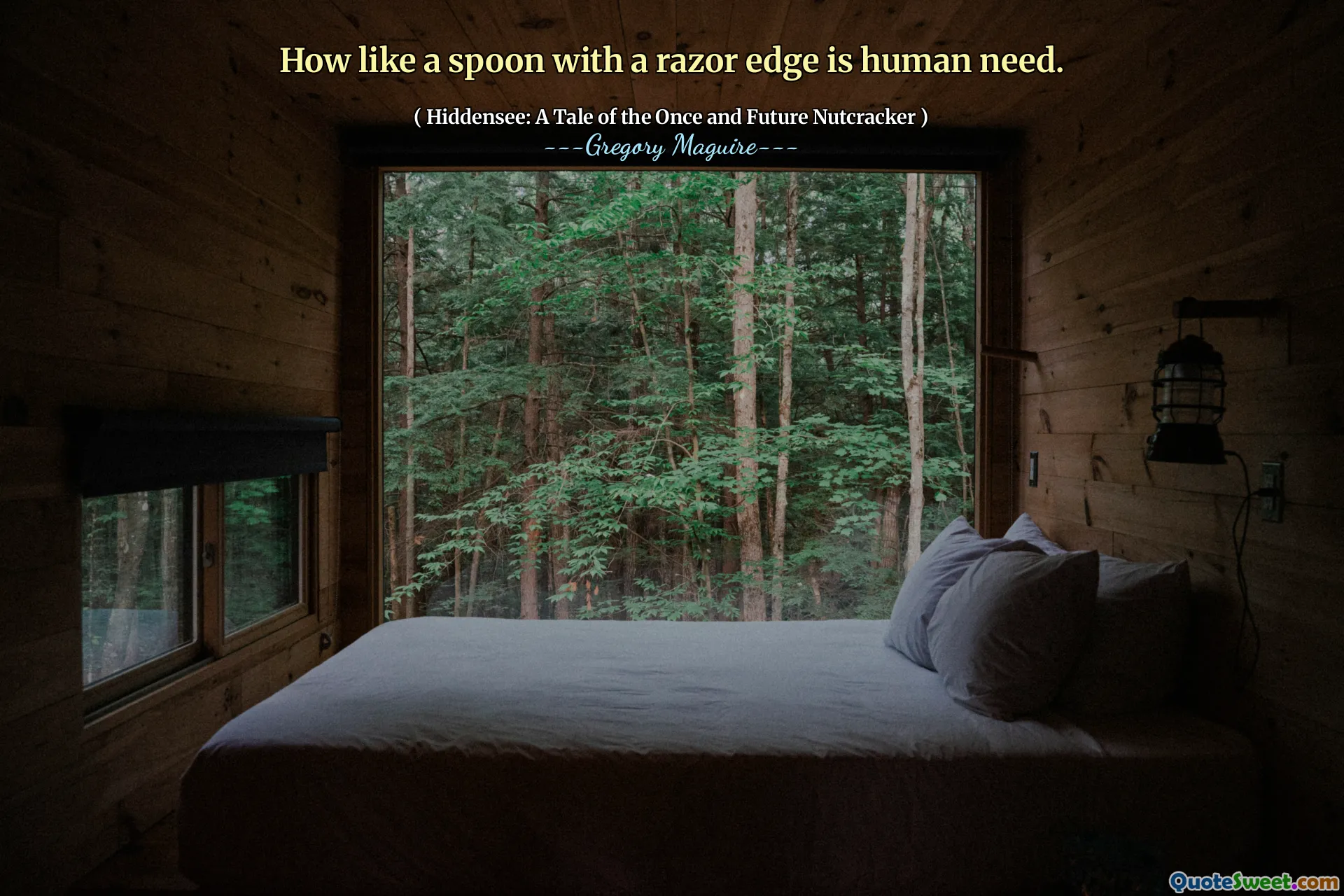
How like a spoon with a razor edge is human need.
This quote vividly captures the often paradoxical and complex nature of human desire and necessity. The metaphor of a spoon—something typically associated with nourishment and comfort—being sharpened to a razor's edge, suggests that human needs, while essential, can also be dangerous or painful when obsession, imbalance, or unfulfilled longing take hold. It highlights the duality within our desires: what sustains us can, under certain circumstances, become a source of harm. At a deeper level, this imagery prompts us to reflect on how the pursuit of needs—whether emotional, physical, or spiritual—might cut into our well-being if not approached with awareness and moderation. The metaphor also subtly hints at the potential violence of unmet needs, internal or external, which can leave scarred or wounded, much like the sharp edge of a razor. Considering the context from Gregory Maguire’s '(Hiddensee: A Tale of the Once and Future Nutcracker)', it might suggest how characters or themes in the story wrestle with their desires—striving for fulfillment but risking self-destruction or harm in that pursuit. Overall, this quote urges one to consider the delicate balance we must maintain between necessity and excess, acknowledging that what we need most can also pose the greatest threat if not handled wisely. It is a reminder that human vulnerability and resilience are intertwined, and understanding this duality is key to navigating life's hardships.
The analogy evokes reflection on the broader human experience—the constant tension between longing and safety, the pain that often accompanies growth, and the beauty found in restraint. It reminds us that human needs are not merely simple sustenance but are often intertwined with our fears, ambitions, and passions. This complexity makes us both remarkably resilient and painfully vulnerable—a bittersweet truth that shapes the human condition.






